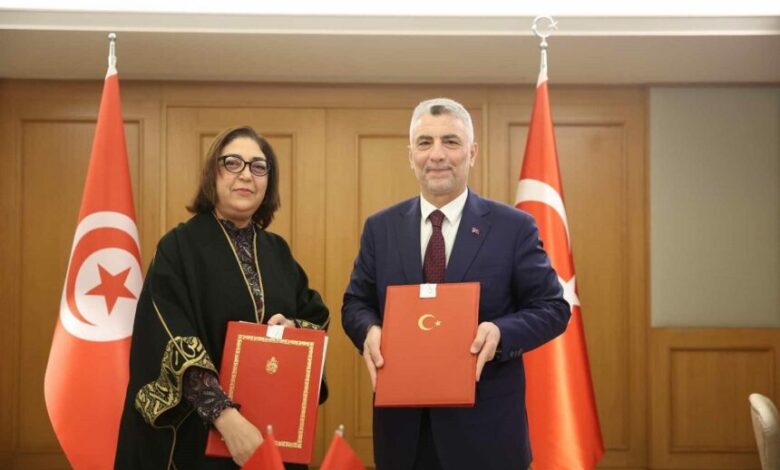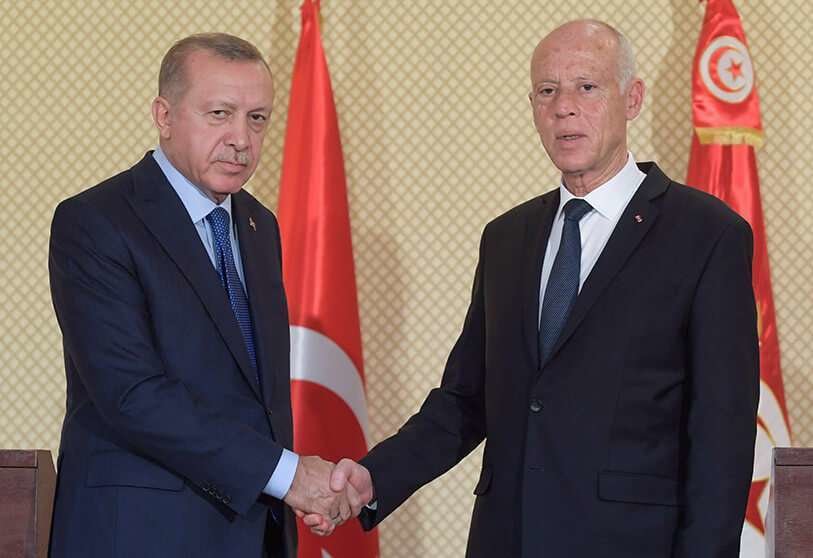Tunisia and Turkey amend free trade agreement in order to step up relations

Tunisia’s Minister of Commerce and Export Development, Kalthoum Ben Rajab Ghazouz, and her Turkish counterpart, Omar Bulat, signed, on December 3, 2023, in Istanbul, an amendment of the free trade agreement between the two countries.
This signing, which crowns a marathon of talks that began in October 2022, has resolved all disagreements between Tunisia and Turkey, according to the Ministry of Commerce and Export Development.
Trade Deficit:
The primary objective for Tunisia is to safeguard its national industry and reduce the trade deficit with Turkey through the adoption of three fundamental measures: (1) a revision of the customs duties applied to some Turkish products that could harm certain locally produced consumer goods, with an increase in duties from the current 0% to rates ranging between 27% and 37.5%; (2) a revision of the free-trade agreement in such a way as to stimulate Tunisian agricultural exports to Turkey, (3) and finally the encouragement of Turkish investments in Tunisia.
Within the context of Tunisia’s effort to reduce this deficit, Tunisian imports from Turkey decreased by 23%, according to statistics from the National Institute of Statistics (INS) published in November 2023.
Boosting relations:
Both parties have vowed to work on the success of the Tunisian-Turkish Economic Forum scheduled for the first half of 2024 in Istanbul. In the first ten months of 2023, Tunisia’s trade deficit reached 15,856.6 million dinars (MD). This deficit is primarily attributed to imbalances with some trading partners, including Turkey (-2807.7 MD), China, and Russia.
Overcoming political disagreements:

Tunisian-Turkish relations have gone through ebbs and flows since 2011. Under the rule of Tunisia’s Islamist-led Troika (2011-2013), relations between the two countries improved, yet many in Tunisia blame Turkey from profiting from this rapprochement to create trade imbalance in its favour.
These warming ties saw a setback in the 2021 -2021 period after Turkish President Recep Tyyip Erdogan criticized the decision of President Kais Saied of Tunisia in the summer of 2021 to suspend the Islamist-dominated Tunisian Parliament in the wake of nationwide demonstrations.
This free-trade agreement and the upcoming Tunisian-Turkish Forum could thus help unfreeze the relations between the two nations at a time when Turkey’s influence on the international stage is growing while Tunisia is drifting further from its Western partners.
Due to economic difficulties, Turkey has tried over the last few years to address its strained relations with several Arab countries. This involved trips made by Erdogan to some Gulf countries, appeasement of tension with Syria and Egypt, and abstinence from traditional pro-Islamist remarks on Tunisian and Egyptian politics.




